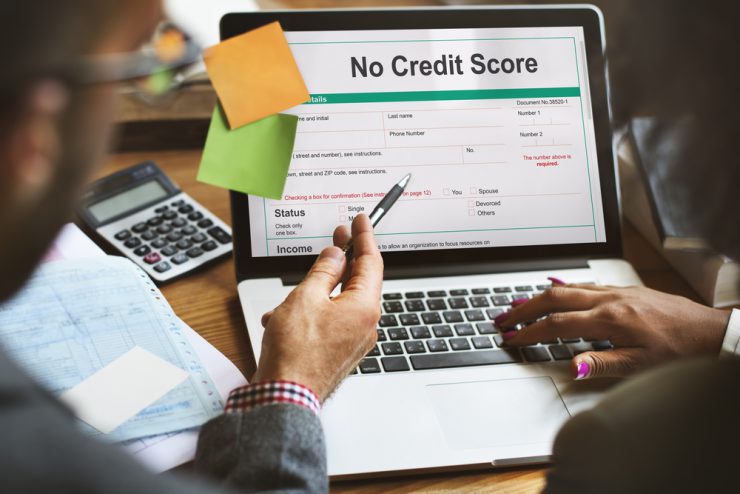But what about having no credit score at all? Is that equally as bad? Keep reading to find out.
Some people never check their credit score because they know they’ve missed payments and figure it’s probably low. If this sounds like you, combat that fear by getting your free annual credit report now.
By seeing your credit history and score, you’ll be able to tell if any errors should be removed to improve your score. You can also see which past mistakes you should avoid in the future. Last, but not least, you can tell if you’ve been a victim of identity theft.
What’s another reason you may not take advantage of your free credit report? The fact that you have no credit history at all.
While having a poor credit history is less than ideal, let’s take a look at how having no evidence of past credit can affect you.
Two Reasons Why You May Have No Credit Score
Not having a credit score means you fall into one of the following categories:
- You never applied for credit cards or a loan in the past.
- You have no recent credit history.
It makes sense that if you’ve never applied for any form of credit in the past that you’d have no score or history. This is common for young people, as they may not give creditors any activity they can use to calculate a score.
On the other end of the spectrum is not having a score due to no recent history. Sure, you may have had credit cards and loans in the past, but if you’ve been dormant for the last 7-10 years, you may have a history, but no score.
Is there a specific cutoff date where your credit score will disappear? No, as there are several factors that go into it. The average range, however, is 7-10 years.
Having no score makes you “credit invisible.” How many people fall into this category? About 10 percent, as reported by the Consumer Financial Protection Bureau in 2016.
The Effects of Having No Credit Score
While no credit isn’t necessarily as bad as having poor credit, it can make it tough to get approved for a loan or card.
Being credit invisible doesn’t necessarily label you as a bad borrower, but rather a mysterious one that some creditors may not want to associate with.
How to Build Your Credit History
You can start building your credit history by doing the following:
- Opening a student or secured credit card.
- Opening a store credit card.
- Becoming an authorized user on someone else’s card.
- Using a cosigner to get a loan or credit card.
- Report your utility payment and rent history to the credit bureaus.
- Finance an expensive item, such as an appliance or furniture, with a store.
- Get a credit-builder loan.
When making any of the above moves, be sure to read the fine print, so you don’t get hit with high fees or interest rates that put you in a hole that’s hard to get out of.




